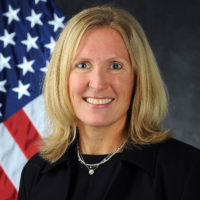Learning lessons is a part of life, and our quest to know everything started at a young age—when learning was easily second nature. We wanted to learn how to do what we saw others doing and our curiosity fueled us to take risks and try new things. Whether that is learning to walk, run, talk, read or even to make someone happy. Our age, neither our size nor our intelligence, could keep us from learning. As a young learner our desire was too strong. Even when the learning hurt, we kept at it. However, for some people, at some point in our journey learning stopped being an adventure and started to become routine. Some of us stopped taking risks, stopped being curious and stopped asking questions, and we forgot the joy of learning. We need to be the caregivers of learning for our students so they don’t forget the joy of learning.
Similar to when we were young learners; our learning thrived in those first years in our teaching careers. We took risks, we tried new things, we made mistakes and with each event we reflected. We reflected on what worked, what needed tweaking and what needed to be tossed out.
Over the past 21 years, I have been blessed to work with educators that challenged and supported me, cried and laughed with me, but most importantly, learned with me It is because of these educators that I am the educator I am today. They taught me to take risks, seek out an instructional team and foster relationships.
Back in the early 90’s, I met an explorer in Alaska named Colonel Norman Vaughan at the state fair where he was signing his book. He autographed the book, “Dream big and dare to fail.” He said, “If you don’t try to accomplish your dream, you fail before you start. You must persevere!”
Never stop being a risk-taker.
We must persevere in our profession. We must take risks. Our students deserve nothing less. Be passionate as an educator. As a teacher, we change lives! We influence students. We instill in them a love of learning, just as someone has done for us. Our enthusiasm for what we teach is fuel for student learning, and this enthusiasm emanates from our passion of serving as educators. We want to bring out the best in our students by setting high standards and encouraging them as they strive toward meeting that challenge. We model our expectations daily through our communication and interaction with others; explore creatively new ways to deliver content andremain current with trends and best practices; collaborate with colleagues on ways to reach students at the levels in which they learn best. We dream big and dare to fail! Be resilient and be okay with the idea that with failure emerges a learning opportunity.
Be part of a team.
Personally, as an elementary teacher, middle school teacher and now as an instructional technology coach, being part of a team influenced who I am today as a learner, as a leader and as a teacher. It is our responsibility to improve as teachers and being part of a team fosters this professional growth. Early in my career, I was part of four-person team in which three of my teammates had 20+ years of experience—I had less than five. Their experience in the classroom, and in the field of education, helped strengthen me as an educator. Meanwhile, fresh from the university, I was able to share new ideas and methodologies for the team to try out. We would teach lessons, build units and constantly help each other find ways to improve our work in the classroom, thus benefiting all of our students. Luckily, I experienced the benefits of professional learning teams throughout my career and continue to seek out collaborative opportunities to work with other colleagues. Join a team or build a team, but make it a priority to engage with other professionals in very specific ways to improve as an educator, thus positively impacting student success.
Fostering relationships—it just makes sense.
Students who are cared for perform better. Developing an understanding of our student’s social-emotional well-being is essential still for us, as teachers, to connect student learning with the real world. Building a community in our classrooms where students are valued, where consequences are fair (but not always equal) and communication is clear is a community where students often times find success. When we genuinely take time to interact with students, listen to their voice and find ways to make connections to learning, it nurtures that sense of belonging. With that sense of belonging students often times take more risks, ask more questions and feel safe trying new things. That sense of curiosity starts growing and the desire to learn more develops. It is a relationship we must cultivate carefully and then allow space for it to flourish. Remember, the importance of each role in our schools—everyone in our school has the potential to make a positive impact on a student’s life. It is imperative that we build a community where all are valued.
As educators we cultivate the joy of learning!
We take risks and learn from our mistakes. We nurture learning through collaboration, reflection and practice. We build communities that appreciate and accept each member. Most importantly, we inspire the joy of learning.
© Cognia Inc.
This article may be republished or reproduced in accordance with The Source Copyright Policy.
The information in this article is given to the reader with the understanding that neither the author nor Cognia is in engaged in rendering any legal or business advice to the user or general public. The views, thoughts, and opinions expressed in this article belong solely to the author(s), and do not necessarily reflect the official policy or position of Cognia, the author’s employer, organization, or other group or individual.

